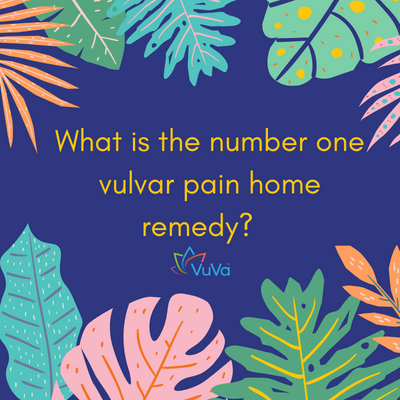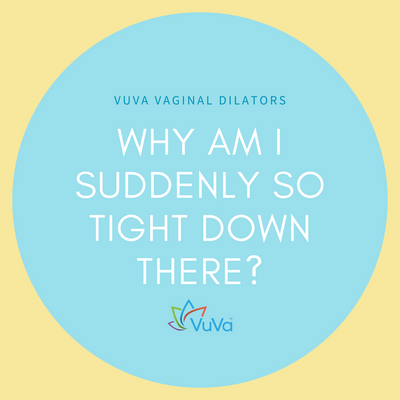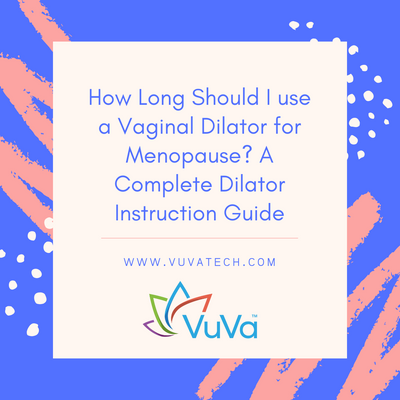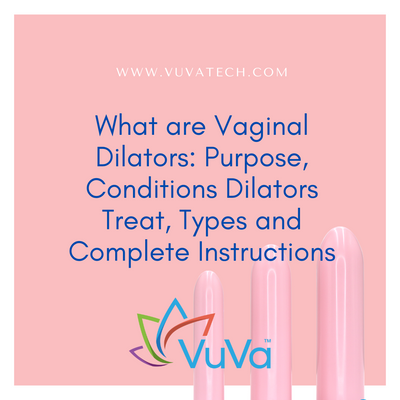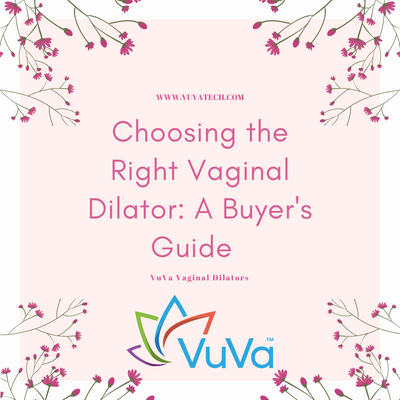
| Tara Langdale
Vulvodynia Treatment: Causes, Symptoms & Care
Are you looking for a vulvodynia treatment that works? For years, you've tried everything to reduce the burning and stinging associated with vulvodynia, but haven't been able to find relief. You're not alone. Eight percent of all women afflicted with vulvodynia never find a cure for that pelvic pain.
While 8% may not seem like a large number at first, it translates into over 13 million women in the United States having to bear the vulvar pain of vulvodynia. (1) Vulvodynia places a significant hardship on emotional wellbeing, society, the health care system, and significant others. In this article, we'll discuss vulvodynia treatment, causes, symptoms, and care to relieve pain for the millions of women suffering in silence.
What is vulvodynia?
According to the National Vulvodynia Association, vulvodynia is chronic pelvic pain in the vulva with no known etiology for three months or longer. (2) Women with vulvodynia report varying levels of chronic pain in different places in the vulva.
In some cases, women experience pain solely in one area of the vulvar tissue, referred to as localized vulvodynia. The specific pain points may include the external genitals like the clitoris or the vestibule (vaginal opening). Generalized vulvodynia is when the pain occurs on the entire vulva.
The severity and constancy of the pain varies, too. It can be chronic, during certain activities such as sexual intercourse or when applying pressure while inserting a tampon. Also, the pain can be present with or without touch. When discussing the pain with their health care professionals, women often don't report it as pain, but rather as stabbing, rawness, burning, itching, and tearing.
How is vulvodynia treated?
The American College of Obstetricians says vulvodynia treatment should be individualized and can be treated by one or more of the followings ways: (3)
- pelvic floor physical therapy with vaginal dilation
- medications including oral, topical, and injectable
- biofeedback training
- dietary changes
- sexual counseling
- cognitive behavioral therapy
- surgery
Relieving pain with vaginal dilation
The American Family of Physicians states that physical therapy may help relax and strengthen pelvic muscles. (4) Vaginal Dilator Therapy is a type of physical therapy that uses vaginal dilators to treat and cure vulvodynia. In a clinical trial by the Physician Care Clinical Research, 80% of all women reported less pelvic pain using VuVa™ magnetic vaginal dilators.
VuVa™ magnetic vaginal dilators help stretch and lengthen the vagina naturally. Each dilator has Neodymium magnets that help pull fresh oxygenated blood to pelvic floor muscles and surrounding nerves. It creates a positive energy field that draws out any acidity in the pelvic floor. The nourishing energy rejuvenates the nerve endings to promote faster healing while soothing pain.
Over 30,000 women around the world, suffering from vulvodynia and other pelvic pain conditions, have found relief with VuVatech vaginal dilators. The pelvic floor physical therapy happens in the privacy of your home without a physical therapist, at a pace that works for you.
What are the causes of vulvodynia?
The exact cause of vulvodynia is unknown. It isn't caused by an underlying condition, such as a sexually transmitted disease, skin disease, or cancer. Each woman is different, but the following factors increase the risk of vulvodynia. It's also essential to remember that one or more of these factors may be working together. (5)
- Inflammation and tenderness in the vulva
- Damaging and weakening of the vulva nerves
- Genetic predisposition
- Environmental allergic reactions to certain foods or chemicals
- Long-term exposure to infection or trauma
- Hormonal changes due to menopause or birth control
- Debilitation of the pelvic floor muscles
Provoked vestibulodynia may occur from having sexual activity, a pelvic exam, and prolonged sitting. Horseback riding and wearing tight clothing may also "provoke" the pain. Other risk factors include undergoing pelvic radiation therapy.
Pelvic radiation therapy is a treatment for women with certain types of cancers, including the breast and cervix. The process can cause painful scarring and shortening of the vagina. When this happens, the vaginal tissue becomes thin, dry, and tight.
What are the symptoms of vulvodynia?
Vulvodynia symptoms vary from person to person, but characteristics include an itching, irritating, burning, or stinging sensation. The vulvar tissue may give the appearance of being inflamed or may look normal.
It’s thought that vulvodynia is a neuropathic pain, which means the surrounding nerve fibers in the vulvar send irregular messages. Hypersensitive nerve endings are a result.
While vulvodynia isn't life-threatening, it can prevent women from engaging in ordinary or everyday activities. In some cases, it can lead to depression.
How to care for vulvodynia?
Women with vulvar pain do have options for care. Using vaginal dilators to stretch the vagina is a safe and effective way to treat the pain syndrome associated with vulvodynia. Women can also help ease and prevent symptoms by making dietary and lifestyle choices.
Clothing choices: Try to wear 100% cotton underwear, avoid tight underpants and pants, and forgo wearing underwear at night.
Personal care choices: Avoid products (shampoos, perfumes, detergents, deodorants) with fragrances, dyes, and chemicals that may irritate the skin and vulva.
Bathing considerations: Don't clean the vulva with anything but water and after bathing dry thoroughly. You can also apply petroleum jelly or preservative-free oil to help preserve skin moisture and nourish the skin.
Sexual activities: You can use lubricants during sexual intercourse, but don't use flavored oils or ones with a cooling or warming sensation. Also, add more foreplay into your sexual routine to help with penetration.
Other care tips: After going to the bathroom, rinse and dry the vulva. Also, avoid douching or applying anything inside the vagina that might irritate. Switch sanitary pads to 100% cotton pads to prevent irritation. Another way to soothe vulvodynia symptoms is to apply cool gel packs to the vulva.
How is vulvodynia diagnosed?
Scheduling an appointment with your doctor or gynecologist is the best way to diagnose vulvodynia. During the first meeting, your physician will ask you personal questions regarding your health and pain symptoms. It's essential to gain a full picture of your particular situation.
In most cases, the doctor will use a cotton swab to test for pain points in the vulvar. Your doctor wants to determine how mild or how severe the vulvar pain is for you. The swab test can be the most stressful part of the exam. Your doctor may order additional tests to rule out a yeast infection or sexually transmitted disease by taking a sample of vaginal discharge.
If you're suffering from vulvodynia, it's time to find a cure that works for you. Using vaginal dilators daily can help provide long-lasting relief. When you’re ready, we can help you.
Other VuVa Helpful Links:
7 Reasons for a Tight Vagina and How to Loosen
How to Relax Vaginal Muscles, Vaginismus & Sex
Vaginal Stretching - Keeping in Shape with Dilators
Do Dilators Really Work? Yes, and They can Improve Your Sex Life!
Shop for VuVa Vaginal Dilators
- https://www.ncbi.nlm.nih.gov/pmc/articles/PMC4014358/
- https://www.nva.org/what-is-vulvodynia/
- https://www.acog.org/Clinical-Guidance-and-Publications/Committee-Opinions/Committee-on-Gynecologic-Practice/Persistent-Vulvar-Pain
- https://www.aafp.org/afp/1999/0315/p1561.html
- https://www.medicalnewstoday.com/articles/189076.php#treatment



